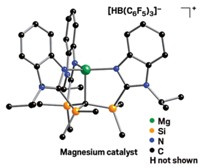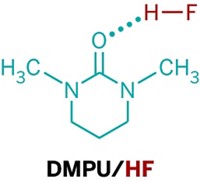Advertisement
Grab your lab coat. Let's get started
Welcome!
Welcome!
Create an account below to get 6 C&EN articles per month, receive newsletters and more - all free.
It seems this is your first time logging in online. Please enter the following information to continue.
As an ACS member you automatically get access to this site. All we need is few more details to create your reading experience.
Not you? Sign in with a different account.
Not you? Sign in with a different account.
ERROR 1
ERROR 1
ERROR 2
ERROR 2
ERROR 2
ERROR 2
ERROR 2
Password and Confirm password must match.
If you have an ACS member number, please enter it here so we can link this account to your membership. (optional)
ERROR 2
ACS values your privacy. By submitting your information, you are gaining access to C&EN and subscribing to our weekly newsletter. We use the information you provide to make your reading experience better, and we will never sell your data to third party members.
Synthesis
Additional Advances In CO2 Fixation
Two research groups report new catalysts that use carbon dioxide as a starting material to make cyclic carbonates
by Stephen K. Ritter
November 10, 2014
| A version of this story appeared in
Volume 92, Issue 45
When it comes to trapping carbon dioxide to reduce industrial greenhouse gas emissions, the biggest challenge is finding something to do with the CO2. One chemical approach is to insert CO2 into epoxides to form cyclic carbonates, which in turn can be used as solvents, as battery electrolytes, and to make polycarbonate plastics. However, the reaction usually requires high temperature and pressure. A team led by Omar K. Farha and Joseph T. Hupp of Northwestern University has developed a hafnium-based metal-organic framework (MOF) catalyst for the process that works under ambient conditions (J. Am. Chem. Soc. 2014, DOI: 10.1021/ja508626n). The researchers found that hafnium forms stronger metal-oxygen bonds in MOFs compared with other metals and thus is a stronger Brønsted acid and an optimal catalyst. In a separate development, Anita E. Mattson’s group at Ohio State University reports using silanediols to catalyze CO2 insertion into epoxides under ambient conditions (ChemSusChem 2014, DOI: 10.1002/cssc.201402783). Silanediols are noncovalent organocatalysts codiscovered by Mattson’s group that mediate a range of chemical reactions by coupling reaction partners through hydrogen-bonding interactions.





Join the conversation
Contact the reporter
Submit a Letter to the Editor for publication
Engage with us on Twitter